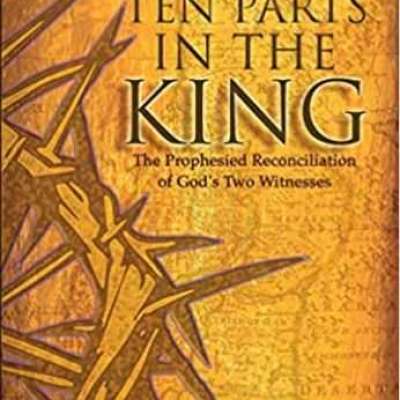Watch
Events
Articles
Market
More

Paperback available at: https://www.amazon.com/dp/1729385672
Kindle available at: https://www.amazon.com/dp/B07K3QJQ31
About 2,500 years ago, Jeremiah wrote about a new covenant God would make with His people, Israel -"Behold, days are coming," declares the LORD, "when I will make a new covenant with the house of Israel and with the house of Judah..." Jeremiah 31:31He wrote this as the Babylonian Empire was on the verge of conquering the last independent part of Israel, the kingdom (or house) of Judah. Nearly a century and a half earlier, the Assyrian Empire had put an end to the other part of the nation: the northern kingdom (or house) of Israel, which the Bible often calls by the names of Joseph and Ephraim. Jeremiah's description of the new covenant is echoed in the New Testament in Hebrews 8:8-12. Readers of the Bible often overlook the fact that God makes this covenant not just with the Jewish people, nor solely with the Christian church, but with the two parts of the nation of Israel. Jeremiah explains the covenant in the context of God's promise to restore the entire nation. How does that change our understanding of God's unfolding plan for ushering the Messianic Age eagerly awaited by Christians and Jews? Ten Parts in the King offers an explanation for the Torah Awakening among Christians, linking it to the prophecies of Israel's restoration. Every part of scripture, from Moses to the prophets to the Apostles, points to the restoration of both parts of Israel: the Jewish House of Judah, and the non-Jewish House of Joseph/Ephraim. The Jewish people have been the visible portion of the nation for millennia, but now in the latter days the House of Joseph/Ephraim is becoming visible as Christians embrace the Hebrew roots of their faith. Without the Jewish people, there can be no Israel. Without the Hebrews of Ephraim, Israel cannot be complete.
Paperback available at: https://www.amazon.com/dp/1729385672
Kindle available at: https://www.amazon.com/dp/B07K3QJQ31